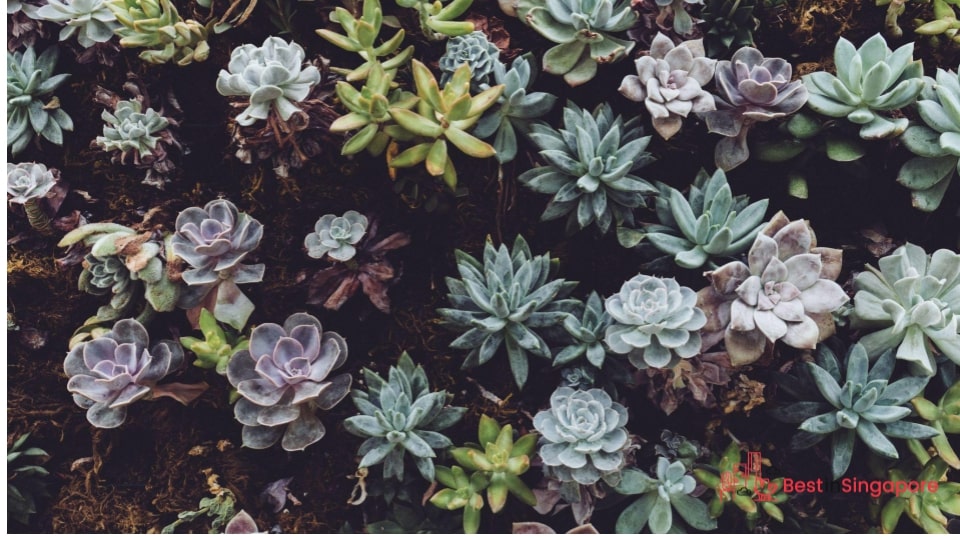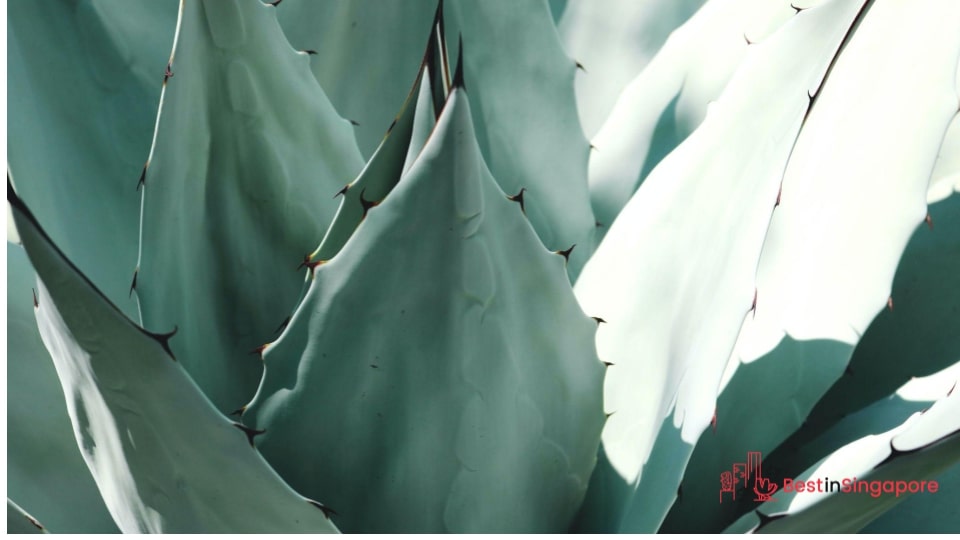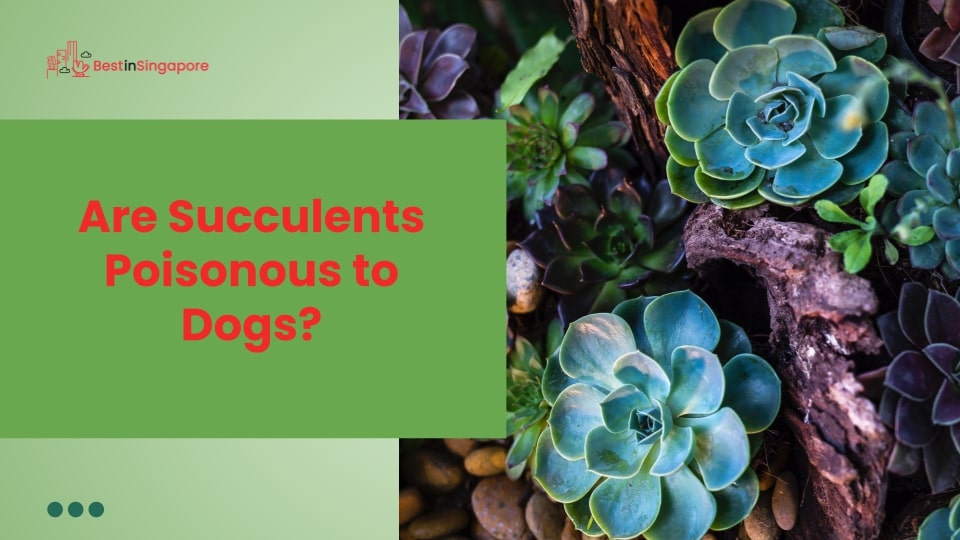Are succulents poisonous to dogs?
We published a good list of things that vets want from dog owners. But for this post, we’d like to add to it by answering the question “Are succulents poisonous to dogs?”
This practical and favourite Christmas gift idea might be toxic to your beloved pooch. Let’s take a closer look at what they are and how harmful they can get.
What are succulent plants?

Since their fleshy leaves require very little maintenance, succulents have become some of the best houseplants for those who don’t have much of a green thumb to show off. They’ve also become quite trendy in home decor lately.
But yes, they can be poisonous to your dogs (and cats, too). And not all succulents have spikes, thorns, or sharp bits that can deter your pet from munching on or playing with them.
We’ll be introducing some succulents that are especially toxic to pets, but it’s a good rule of (green) thumb to keep all species away from them at all times. These include leaf species as well as cacti (more on this in a bit).
Which succulents should I keep away from my dogs?

When we published our “avoid these flowers for your cat” guide, we took care to name specific blooms and similar counterparts. Succulents are easier to identify given their type and varieties though they could have specific poisonous parts for pets.
As an urban gardening tip, avoid succulents with long spiky tendrils, like agave, indoors or anywhere your dog likes hanging around. Its milky white sap can make your dog drool incessantly (and even cause heart problems!).
So even though aloe vera has been touted for its many human healing properties, keep them away from your dogs. They can cause vomiting, distress, lethargy, and diarrhoea to your pet when ingested.
While you’re at it, avoid kalanchoe, jade plants, euphorbia, and other plants listed by your trusted dog welfare advocacy.
What are the first signs of trouble to look out for?

Part of a pet owner’s responsibility is knowing how to identify potential signs of toxic plant ingestion in your dog. Again, if you aren’t sure which succulents are safe to have around, it’s best to steer clear of them altogether.
Check your pet for sudden symptoms of an upset stomach, drooling, lethargy, and difficulty breathing. If you suspect that your dog has somehow ingested a toxic succulent, don’t hesitate to seek professional help ASAP.
And always keep your vet on your pet speed dial contacts so you’ll know which first aid moves to do just in case.
What if my dog ingests a succulent?

Don’t wait until your dog starts hyperventilating like crazy before rushing it to the vet clinic! Once it starts exhibiting signs of lethargy and drooling, make an appointment with your veterinarian or bring it to the ER straight away.
They can check for tell-tale and not-so-obvious signs of succulent ingestion and recommend treatments or medication to address them.
Please note that time is of the essence when it comes to bringing your dog to a trusted veterinarian for suspected poisoning. It could start out as a skin or eye irritation at first but could become steadily worse if nothing is done right away.


